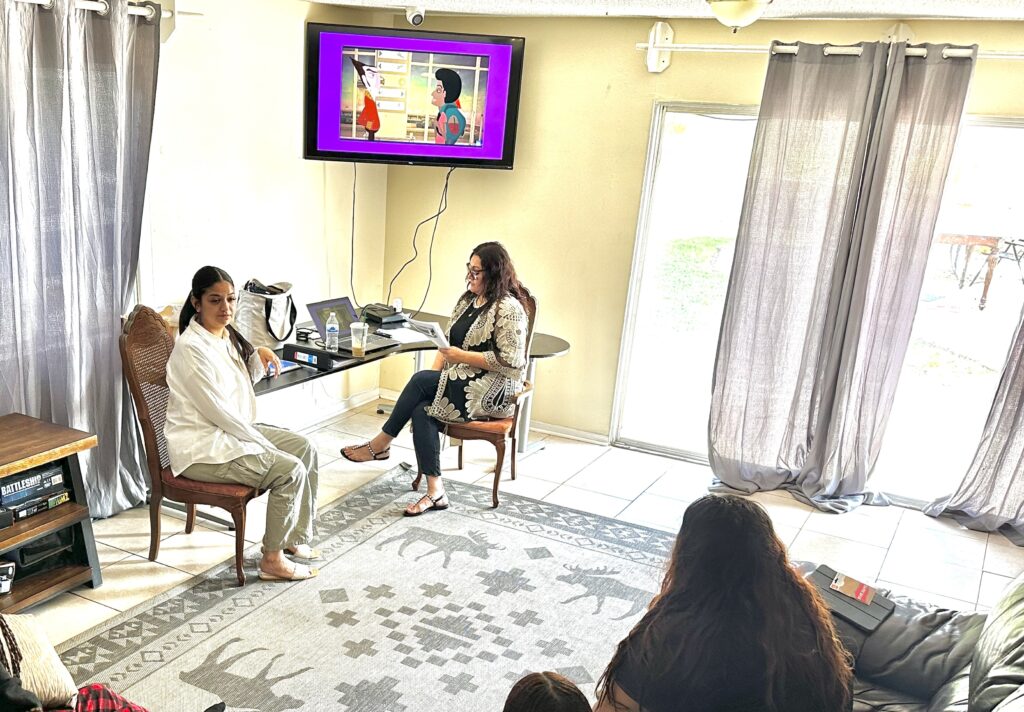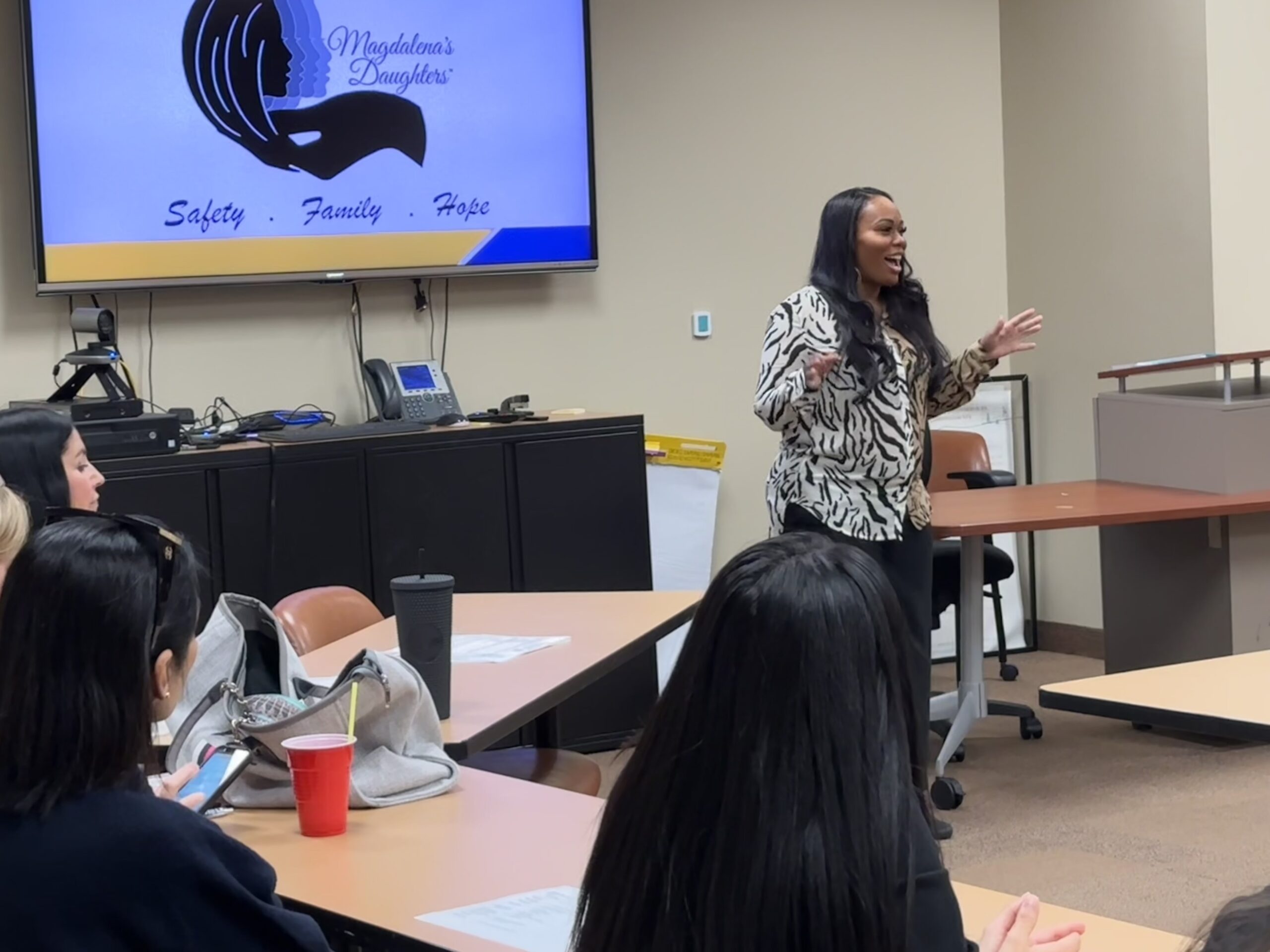Ashley Hill was working as an LMFT in the County of San Bernardino when she witnessed a disturbing trend: the number of adolescent children, most of who were girls in foster youth, becoming victims of sexual trafficking. She realized that human and sex trafficking was happening here in the Inland Empire, and very little was being done about it.
Like many nonprofit leaders, she didn’t set out to do this work; the work found her. In 2018, she founded Magdalena’s Daughters, which provides a unique residential therapeutic program to empower young victims of sex trafficking.
Magdalena’s Daughters’ mission is to provide vulnerable youth in foster care with a sanctuary that combats human trafficking by fostering a sense of safety, family, hope, resilience and a community of belonging.
Prevention is key in this line of work. The Inland Empire-based nonprofits work closely with local group homes to have earnest and candid discussions about human trafficking directly with teens who might be susceptible to sexual abuse.
“Human trafficking is a polarizing topic, and knowing that our society, let alone teenagers, don’t want to learn about it,” said Hill. “So, we developed an animated curriculum, and we try to make it very engaging. Not only that, but it’s survivor-led.”
The combination of the curriculum is often led by a survivor who had the same struggles and lived experiences as the kids they are speaking to, which often leads to foster youth recognizing their own experiences with sex trafficking.
“They can identify signs about human trafficking, and then we also teach them about having healthy relationships,” said Hill.
Working directly with the targeted population allows potential victims to recognize and be aware of the dangers and pitfalls of human trafficking. Additionally, it shows at-risk youth what a healthy, trusting relationship with an adult should look and feel like. Working directly with the targeted population allows potential victims to recognize and be aware of the dangers and pitfalls of human trafficking. Additionally, it shows at-risk youth what a healthy, trusting relationship with an adult should look and feel like.
As an LMFT, Hill learned the importance of creating healthy relationships with struggling teens and foster youth.

“I remind every kid I work with that I’m still going to have a relationship with you,” shared Hill. “Because I know relationships are important and the only way I can actually sew into their life.”
Hill recognizes that a one-day training isn’t going to stop human trafficking and that more work needs to be done at every level, including educating foster home staff and advocating for policy changes.
However, through their program, they are working directly with at-risk foster youth to educate, inspire and start those meaningful connections to help prevent them from becoming victims of sexual and human trafficking.
“From the foster youth perspective, who are these new people coming into the home? They have no idea who we are,” said Hill. “But taking these small steps in planting the seeds helps make the impact, too.”
In addition to prevention, Magdalena’s Daughters works directly with survivors to encourage them to speak about their experiences and start their healing journey.
While Magdalena’s Daughters doesn’t provide mental or behavioral health services directly, their work is essential to impacting the health and well-being of victims of human trafficking.
Combatting sex trafficking is no easy feat, and with limited resources and a lack of awareness about it in the region, however, the Magdalena’s Daughters team continues to be determined to find innovative solutions to prevent more young people from falling prey.
“When I started, I felt a stirring within my soul to do this work,” said Hill. “Every day, I always remember my why: to create a positive impact for these kids who deserve to live in a safe place surrounded by trustworthy and truly caring adults.”
Magdalena’s Daughters was one of 60 nonprofits in the Inland Empire that participated in our Collaborative Capacity Building Grant program earlier this year. Learn more about how the local nonprofit cultivates healthy living among foster and vulnerable youth across the region here.
